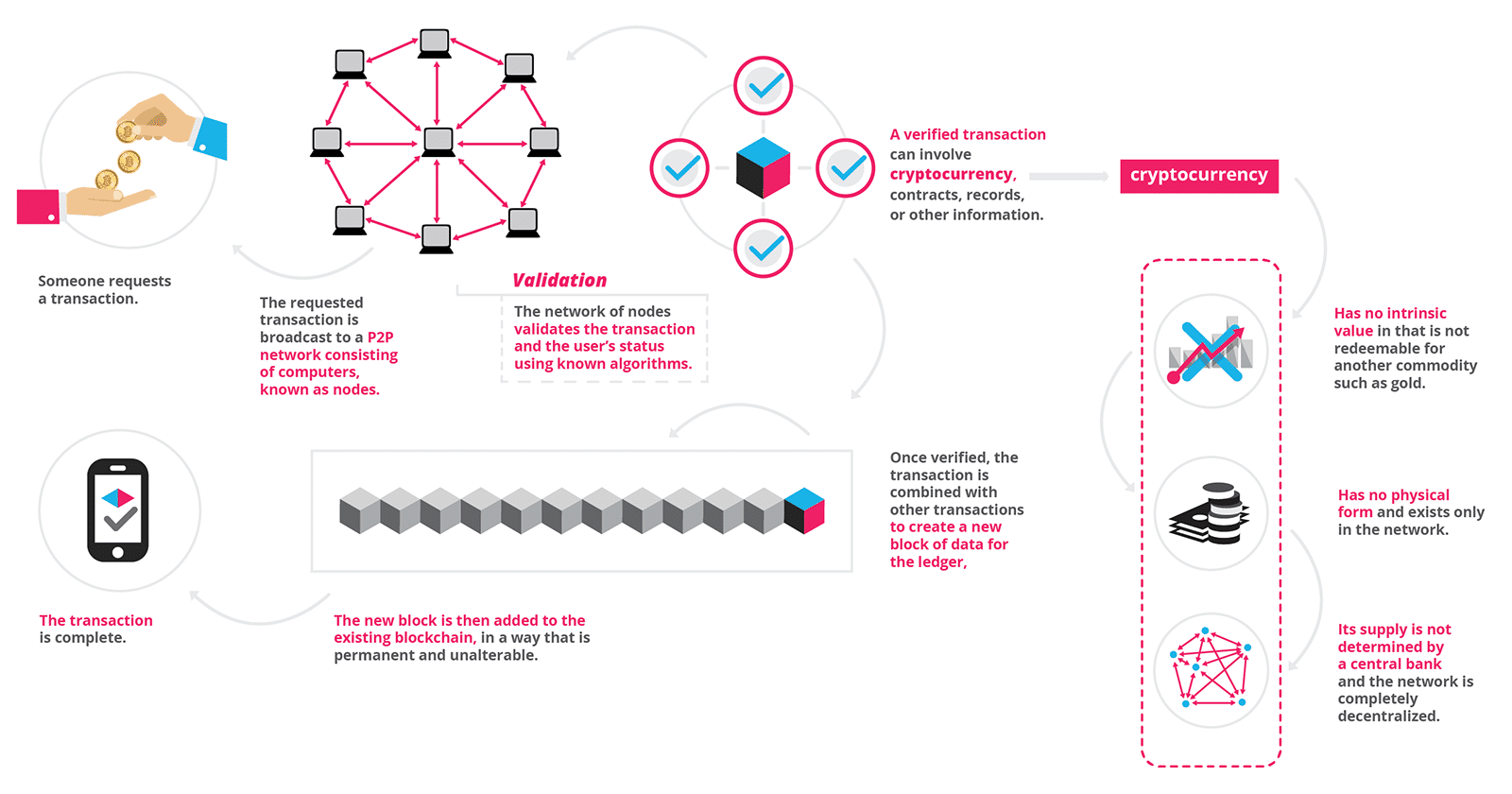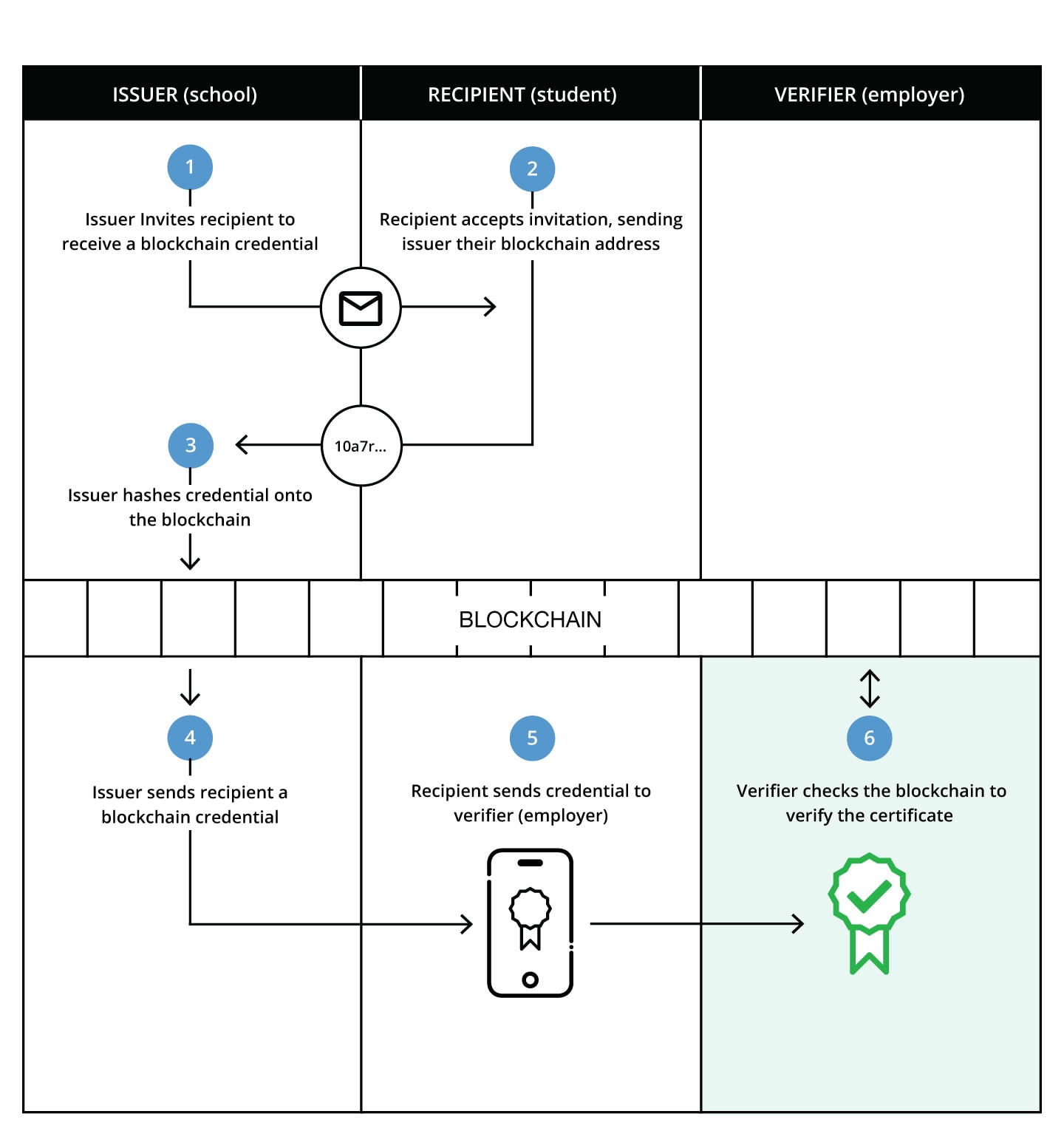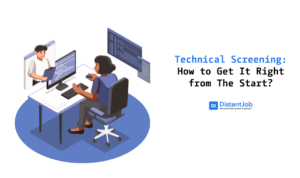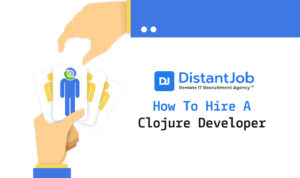What is your primary concern when recruiting a remote candidate? A candidate you most likely won’t meet face-to-face. Someone you’ll have to share your company’s inner workings with. That they may not be who they claim to be? Your legwork won’t reveal everything about them?
For the last point, we happen to be good at sleuthing candidate qualifications. So let us know if you need help.
Doing the due diligence on a candidate’s background is a massive undertaking. Particularly for an SME whose resources are better tied up in other more fruitful endeavors.
It’s easy to glaze over the white lies that often embellish resumes. Result? The candidate fails to perform as well as expected. You have to fire someone and restart the weeks-long hiring process again.
But what if you could verify a candidate’s credentials in seconds (YES!)? How much time, effort, and money could you save for example when hiring a blockchain developer? Blockchain technology can make that possible.
Let’s see how else blockchain can redefine remote hiring.
Mapping Features of Blockchain to Remote Recruiting
The technology behind cryptocurrencies, like Bitcoin, is so powerful that it’ll soon change the way everyone works. BlockGeeks has an excellent guide to blockchain for beginners.
But as far as our remote candidate goes, think of blockchain as a permanent record. An honest, verified, unbiased permanent record that includes everything the candidate has accomplished in school, college, work, extracurricular activities, and so on.
It works on the basis that every piece of information (i.e., block) in the ledger (i.e., blockchain) is verified, cannot be changed without the consensus of all members on that network, and cannot be overridden by one person.

Source: BlockGeeks
A few features of a blockchain network and how that’s useful to HR:
- Transparent: Information on a blockchain is publicly accessible to anyone who has rights to that ledger. Information isn’t sequestered. So a candidate who has given you access to his education blockchain cannot hide that he received a C in Programming 101, even when his overall GPA was 3.5/4.
- Incorruptible: Maybe the likes of Tony Stark and Bruce Wayne could crack the code, but the rest would fail to decipher its cryptography. A candidate would never be able to change any information on a blockchain without the consensus of everyone on that network.
- Decentralized: There’s no one central account where data is stored. A Blockchain is managed by its network. The information of the candidate belongs to him (not a third party), yet it’s the same across all nodes of the blockchain network.
How Can Blockchain be Used within Remote Recruitment?
Blockchain has many applications in any scenario that requires traceability, accountability, and identity detection, like:
- Verifying a candidate’s education and employment history – Embellished resumes will become a thing of the past (along with resumes themselves) when everything a candidate has ever done is added to the blockchain. You’ll know how involved a candidate was in a project, his skill levels based on those works, and exactly how qualified he is.
- Checking references and reviews – No more calling up references to validate testimonials, regardless of where in the world a candidate studied or worked. Testimonials would be added to a blockchain ledger with full knowledge and permission of the referee/reviewer, to begin with.
- Detecting the nuances of a candidate’s profile – Since all information on a blockchain network is public, so are a candidate’s failures. Knowing the candidate failed is not essential, but instead how he grew from of it will show his grit. A lot of experiential questions have “made up” answers. Blockchains make these answers transparent.
- Finding the most-suitable candidate – When you have an exact idea of who a candidate is and their qualifications, you have a better chance of hiring the best person for the job.
- Hiring international workers – With absolute transparency, any doubt you have about an international worker’s credentials can be squashed. This will also open up the talent pool for your business.
- Calculating accurate payments and taxes – Thanks to free information flow on blockchain networks, you’ll know exactly how much to pay your out-of-state, contract, and international employees, and how much tax to withhold. (On the other hand, we at DistantJob have been handling this for our clients for almost a decade, so there’s that. 🙂 )
- Giving your employees the correct benefits – Particularly in the case of medical insurance, candidates may not disclose preexisting conditions, which alter how payments are calculated. If the candidate’s medical records are on a blockchain, it’ll add another layer of transparency here, too.
- Portraying the right image about your own company – Blockchain would give potential candidates a clearer picture of your company and accomplishments, and help them figure out whether they fit in with your culture or not.
- Signing on new hires using smart contracts – Smart contracts can be used for employee contracts, benefits agreements, finishing onboarding courses, issuing raises, even termination. This will streamline and clarify work rules and procedures.
Every aspect of remote work, from managing workload to working with multi-disciplinary teams, will become a lot easier when information flows securely and transparently on blockchain networks.

Source: MIT’s Blockcerts
Blockchain Tools Currently Available For Remote Hiring
Developers across the world are rushing to build blockchain tools that will serve different industries. In HR alone there are 50+ applications up and running. And many more that’ll take off this year.
Here’s a short list of a few blockchain tools used in HR. You can find more here.
- dock.io – connects a candidate’s information from different platforms across the internet into one place using blockchain. So when you look at their profile, you get an in-depth picture of their education, work, social life and more.
- appii.io – creates candidate profiles that are verified using everything from biometric identification to career logs. This means you don’t have to spend hours doing verifications.
- ouna.io – finds the best matches between candidates and employers using its extensive database and assessment tools based on the Pyramidal Assessment Model.
- Gigachain – maintains work records of employees which becomes the basis of payment for the work done – really great for a distributed team.
- TiiQu – builds trust between employers and candidates by maintaining digital “passports” that contain everything from identity, qualifications, and skills to performance metrics. They also use smart contracts that interested parties “sign” to work together.
Current Limitations of Blockchain in Remote Recrutiment
Undoubtedly, blockchain has huge potential to change how all work is done. But, first, “all” businesses and institutions need to start using this technology. What if your potential candidate studied at an institution that doesn’t yet use blockchains to record education history? So, despite the technology being available, it needs to be accepted by users who will populate and create their blockchain ledgers.
Secondly, more applications and tools are needed to make its usage viable, easy, and widespread. Currently, there’s a call to developers to create more apps. From MIT’s Blockcerts to the Hedera Hashgraph Platform, businesses are looking for collaborators who will develop new applications that’ll make blockchain mainstream.
Even though it seems obvious that blockchains will become the standard in the future, we’re certainly not there yet.
DistantJob, on the other hand, IS. We’ve been using our own network of professionals to do all of the above for years, now. While blockchain may be the future – and we can’t wait to tap into its potential for ourselves – it’s still not able to replicate good, old human intuition and experience. So while you wait for the tech to mature, we can definitely help you find your best-suited blockchain developers.




